Five talking points from stage seven of the Tour de France 2020
Ineos victims of their own success and Sagan's fight for green - all the big moments from a hectic day
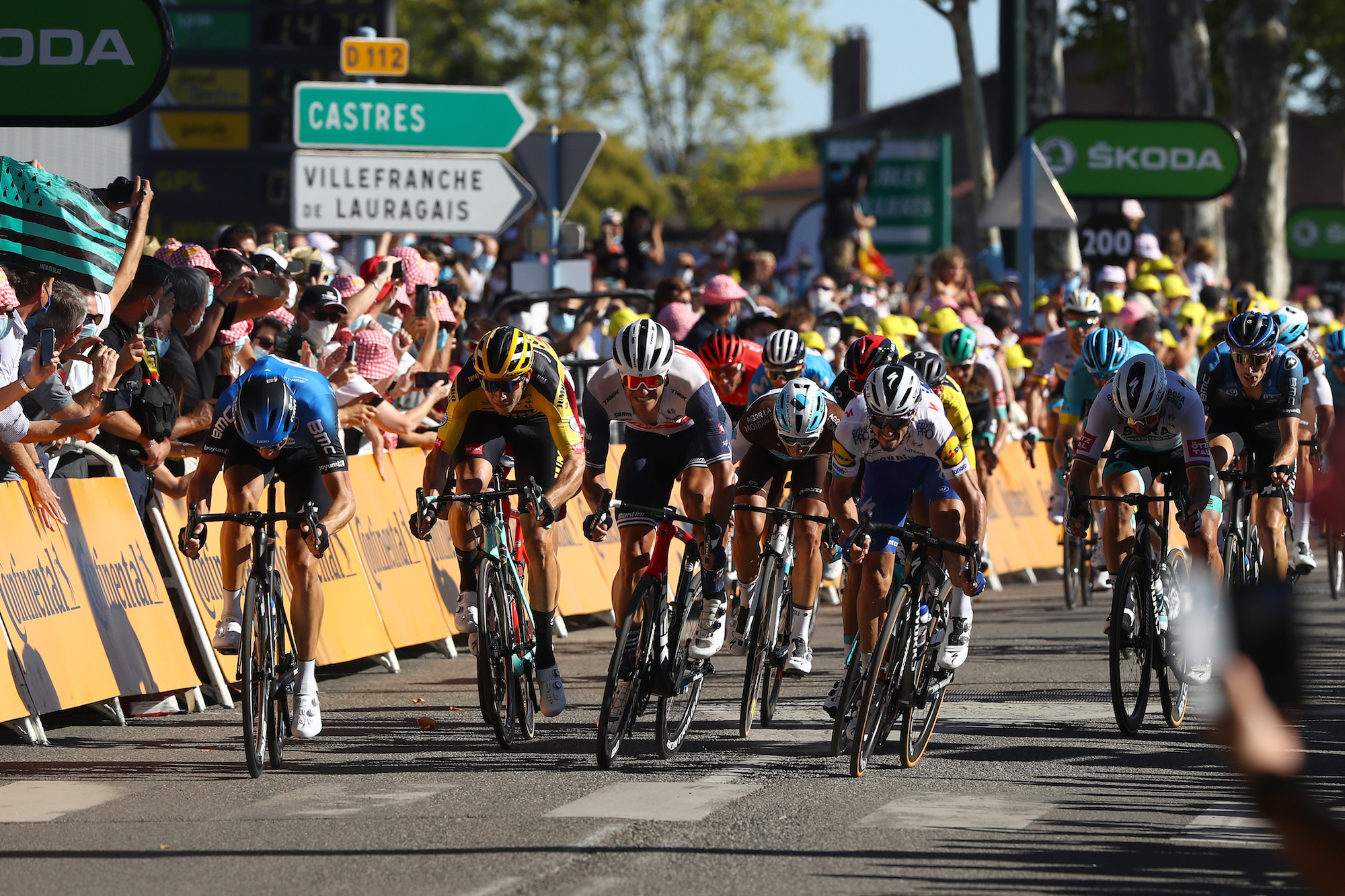
A thrilling day of racing
It’s funny how the Tour de France works sometimes. One day there’s a stage like day six, expected to be a big showdown among the top favourites on a summit finishes, but which amounts to nothing. And the next there’s a stage like day seven, a relatively straightforward day on paper that instead bursts into life from the very beginning for a breathless day of thrilling racing.
Although there was talk of the Vent d'Autan wind having an effect on the race in the final kilometres, nobody expected the action to kick off right from the start. In an attempt to reclaim the green jersey from Sam Bennett (Deceuninck - Quick-Step) for their leader Peter Sagan, Bora-Hansgrohe took it upon themselves to make the race difficult, setting a brutal pace at the front of the peloton over the category three Côte de Luzençon.
It worked a treat, with pretty much all the major sprinters dropped out the back including Bennett — who, it should be remembered, used to ride for Bora-Hansgrohe, and left partly because of being rejected a place in the Tour de France in favour of Peter Sagan.
No GC riders were dropped yet, but many were isolated from key domestiques, leaving them vulnerable in the final kilometres of the race if the wind was to blow.
And the wind did blow. A cross-tailwind was the ideal direction for the breeze to blow the race to pieces, and what was left of the peloton was split into yet smaller pieces, with Tadej Pogačar (UAE Team Emirates) and Mikel Landa (Bahrain-McLaren) the biggest names caught out.
Any riders hoping for a gentle day of rest prior to the Pyrenees was left bitterly disappointed. But for us fans watching, it was the most exciting racing at the 2020 Tour de France so far.
The latest race content, interviews, features, reviews and expert buying guides, direct to your inbox!
Wout van Aert wins again
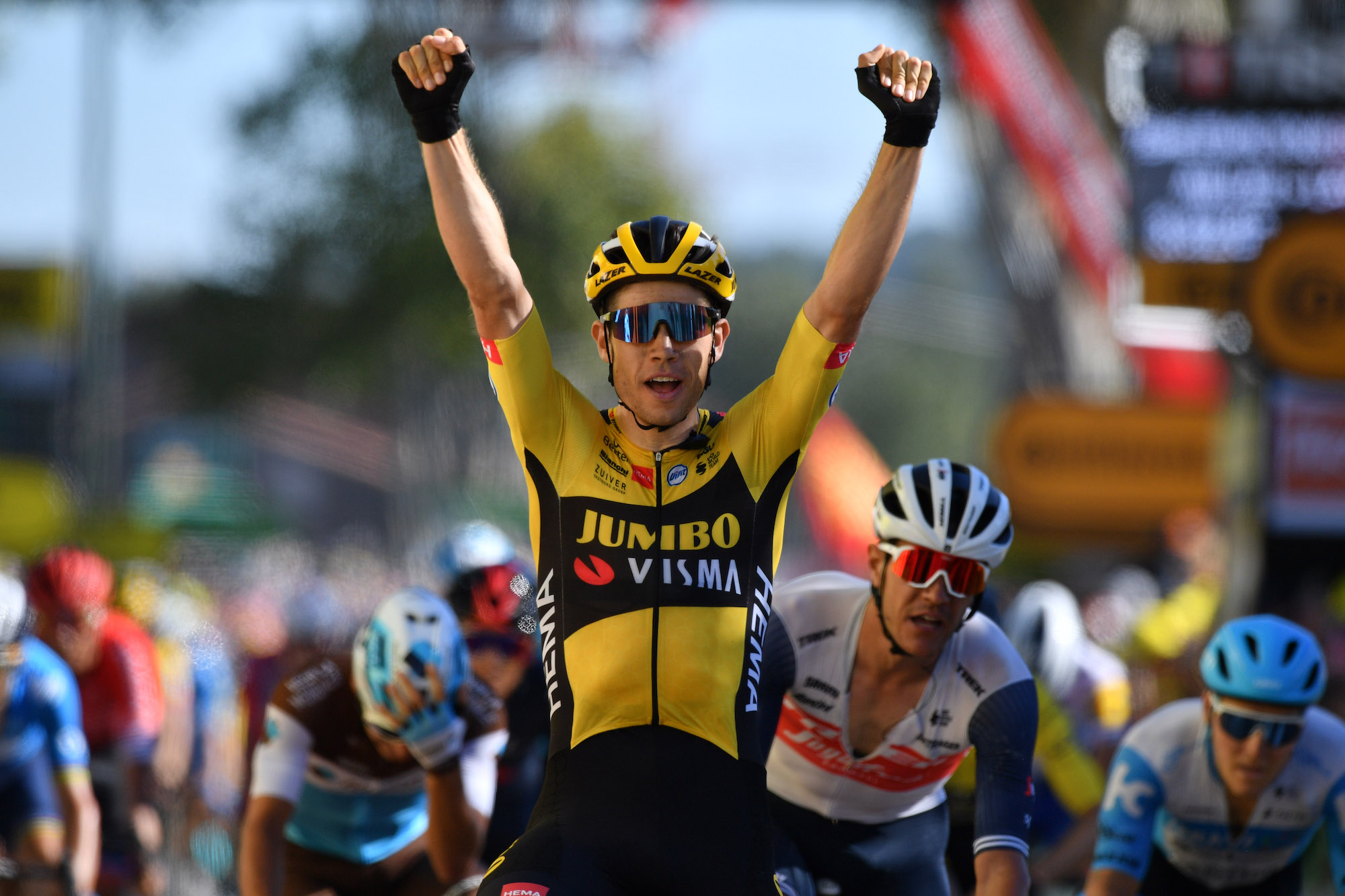
Wout van Aert became the first repeat winner of this year’s Tour de France, with yet another explosive sprint finish.
Even more impressive, the Belgian has a 100 per cent record this week of winning every stage he’s gone for. On most days he’s fulfilled a supporting role, forming part of the strong train of climbing super-domestiques who have helped steer Primož Roglič to third overall, and set-up his victory on stage four.
Having decided not to contest the first two bunch sprints, it seemed as though he might eschew personal ambition completely this Tour. But the thought “why not?” must have popped into his head on both Wednesday and today’s stage, in which he managed to temporarily relieve himself of domestique duties to claim some glory for himself.
The circumstances were perfect for Van Aert. A good enough climber to survive Bora-Hansgrohe’s pace on the early climbs, and a powerful enough rouleur to cope with the windy finale, he was one of only a very small handful of sprinters left by the finish to contest for the win.
At the finish, he then produced a similar turn of speed that saw him win on Wednesday, and comfortably defeated Edvald Boasson Hagen (NTT) and Bryan Coquard (B&B Hotels-Vital Concept).
Following earlier triumphs at Milan-San Remo, Strade Bianche and at the Critérium du Dauphiné, that’s now five World Tour wins for Van Aert — more than any other rider this year.
Significant overall contenders lose time
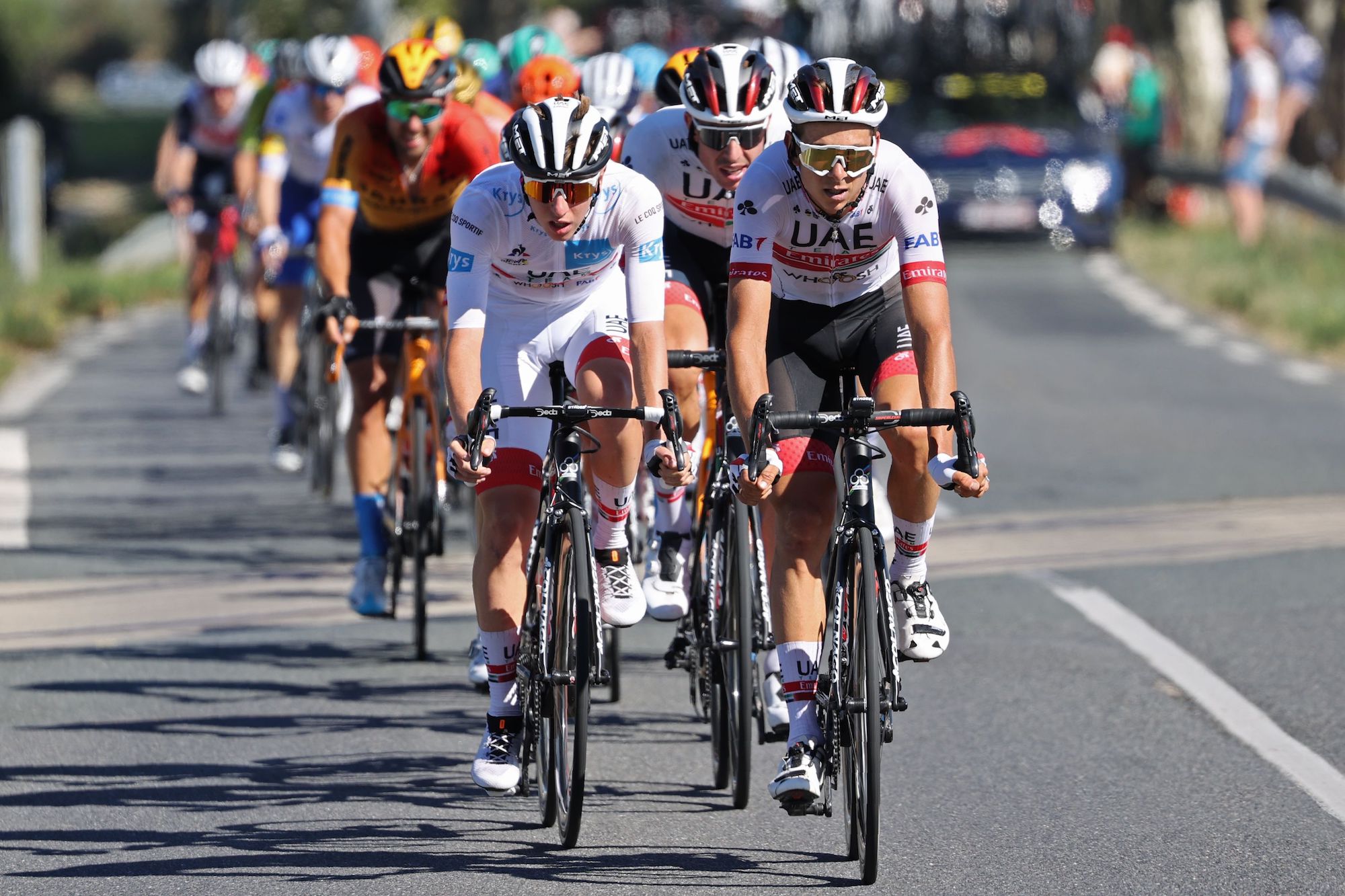
There are usually major GC casualties when the wind blows like this, and today was no exception, with Mikel Landa and Tadej Pogačar both being caught out.
Both riders had ridden exemplary races up until now. Landa has enjoyed the kind of first week every GC contender hopes for, avoiding any incident while so many of his rivals crashed or suffered mechanicals, riding to 13th overall without losing any time, despite barely being seen on TV.
And Pogačar had looked really impressive on the summit finishes, finishing second at Orcières-Merlette, and had held the white jersey for the last three days as the best young rider in the race.
All that good work was undone in a flash. The race burst into life as the road changed direction out of Castres, and Pogačar and Landa didn’t position themselves well enough, finding themselves on the wrong side of the split.
It could have been much worse. With teammates to assist them, they managed to limit their losses to 1-21 at the line, where on a worse day several minutes could have been conceded.
Still, even small losses can have a big impact, as Landa especially knows all too well — at the 2017 Tour de France, he missed out on a podium finish by a single second. Will today’s losses be similarly decisive?
Ineos Grenadiers are victims of their own success
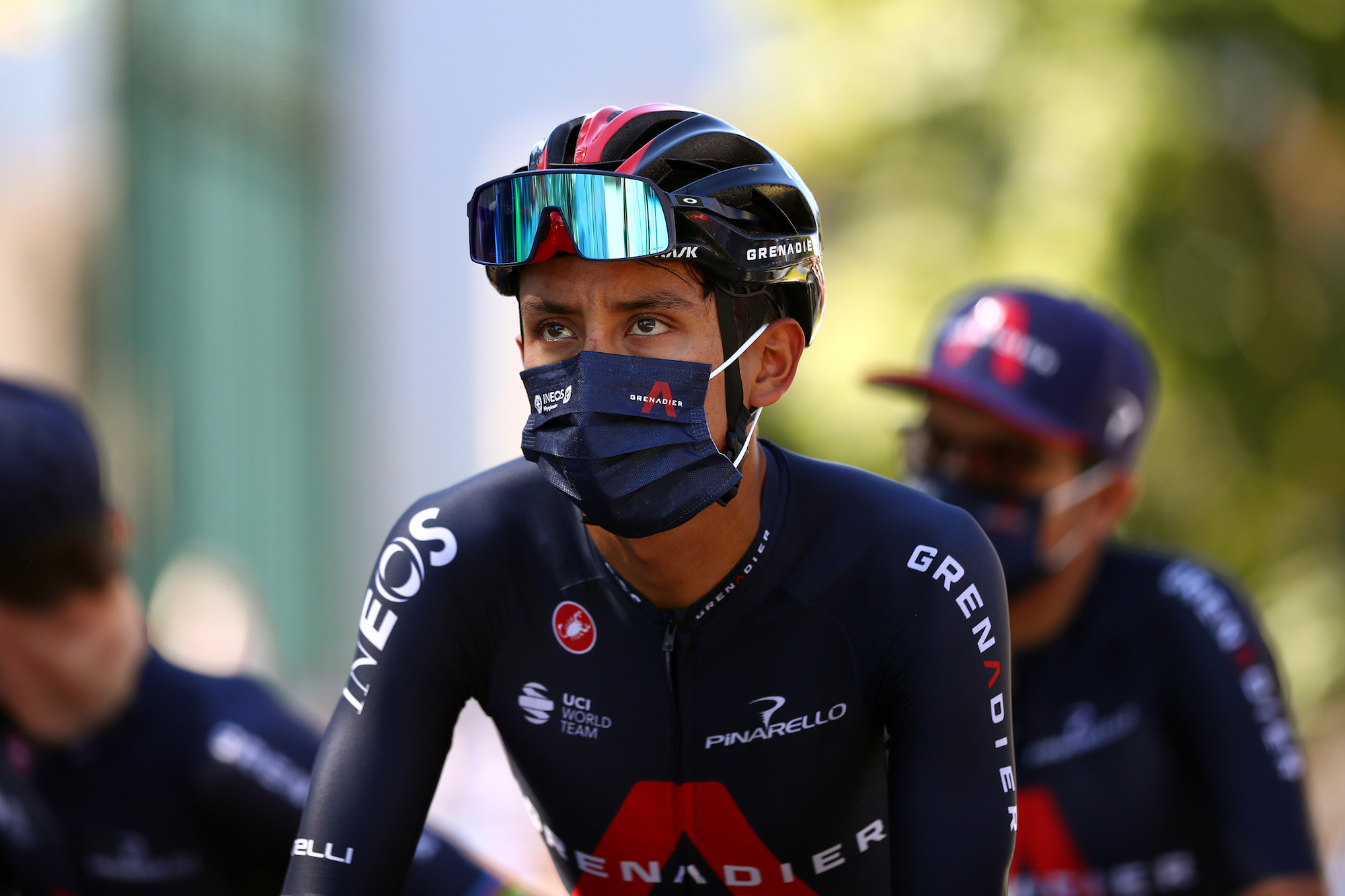
They might have left Jumbo-Visma to take the reins on some of the major mountains so far this Tour, but Ineos Grenadiers were at the forefront of the action on stage seven, causing the crucial splits that formed in the finale.
Usually Luke Rowe is the perfect man for such windy conditions but the Welshman had been dropped earlier on the climbs. The team still had the combined might of Michał Kwiatkowski and Jonathan Castroviejo, though, and even Egan Bernal himself — who, despite his small stature, has a history of riding at the front in strong winds — took a few turns.
Ultimately, however, the team ended up being victims of their own success, when Richard Carapaz suffered the misfortune of a mechanical after the splits had been made.
The fact that Castroviejo was sent back — albeit belatedly — to help pace him suggests that the team still hope to have a two-pronged strategy for the GC, with Carapaz used as a potential yellow jersey and not just a super-domestique.
But even with Castroviejo’s help, the Ecuadorian was unable to make it back to the front group, eventually drifting back to the chasers and losing 1-21. Now 2-02 down on GC, having also lost time on stage four, Carapaz is looking less and less threatening, leaving Ineos Grenadiers with one less string to their bow.
Sagan reclaims green, showing why he’s so hard to beat
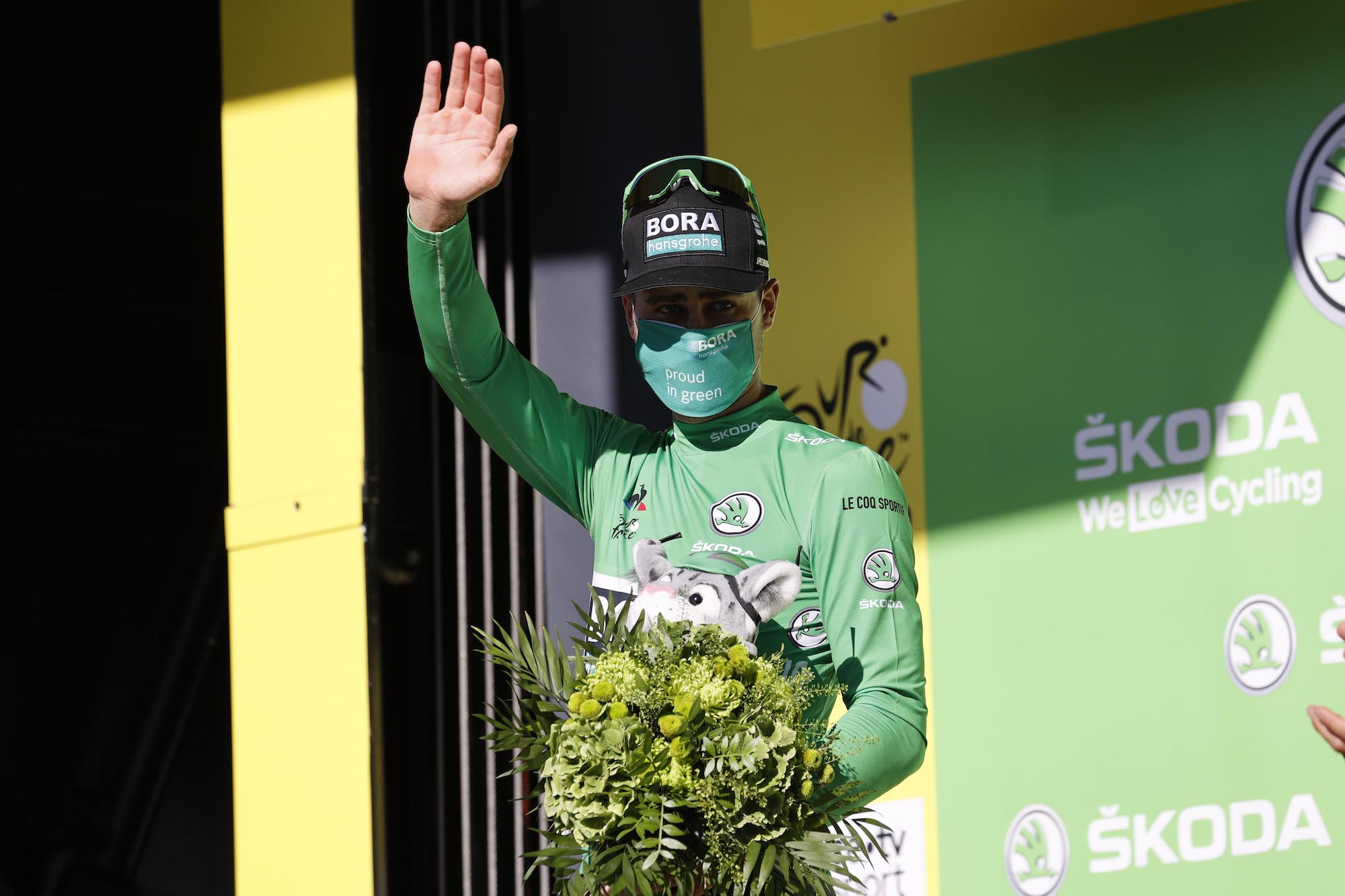
There has been some talk that Peter Sagan (Bora-Hansgrohe) is not as strong as in past years, and that his vice-like grip on the green jersey (a competition he has won a record seven times) might at last be loosening. His highest finish before today was fourth on Wednesday’s stage to Privas, and Sam Bennett even managed to take the jersey from him — something no-one has managed to do since 2016.
However, it’s never been in the opening week bunch sprints that Sagan has won the classification. He doesn’t have the purer kick required to win these normal flat stages, and if there’s been any sense of regression, it’s that he’s finished fourth and fifth on stages he might in the past have finished second or third.
Rather, it’s in chaotic circumstances like today that Sagan flourishes in, picking up points while his rivals are left floundering.
Bora-Hansgrohe dropped Bennett and most of his other rivals with their early pace-setting, allowing Sagan to pick up enough points at the intermediate sprint to reclaim the green jersey.
He had hoped to extend his lead yet further at the finish, and potentially even win the stage, but had the misfortune of dropping a chain in the sprint. Nevertheless, despite having to settle for 13th on the stage, the jersey is his again — and he might even have his eye on more points at the intermediate sprints on offer during the weekend’s stages in the Pyrenees.
Stephen Puddicombe is a freelance journalist for Cycling Weekly, who regularly contributes to our World Tour racing coverage with race reports, news stories, interviews and features. Outside of cycling, he also enjoys writing about film and TV - but you won't find much of that content embedded into his CW articles.